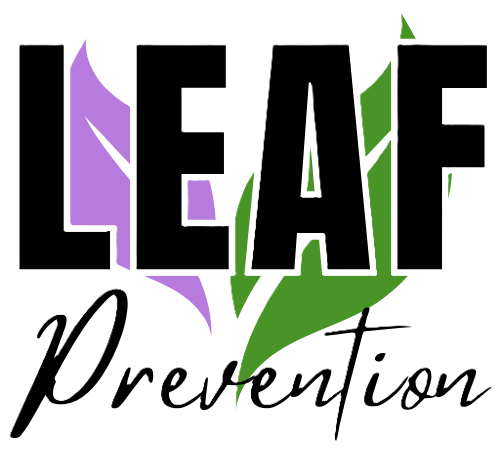

Blog Posts
Opioids are drugs typically used to reduce pain, but in recent years, opioids have been misused in increasing numbers, leading to what is known as “The Opioid Epidemic.”
Whether the opioids are legal or illegal, they are capable of causing similar harm to those who take them.
Yale Medicine describes opioid use disorder as “a chronic brain disease in which people continue to use opioids in spite of harms caused by their use.”
Read on for more information on what opioids are, why they’re dangerous, and what you can do to prevent opioid misuse.
Opioids are a class of drugs that affect the pain and reward receptors in the brain. Opioids can be legal or illegal substances.
Legal opioids include prescription drugs, such as oxycodone, hydrocodone, morphine, and many others. Although these drugs can be prescribed by a doctor, they can be very addicting, and patients taking these prescriptions may be at risk for misusing them.
Heroin, which is illegal in the US, also falls under the opioid category.
Fentanyl is another opioid which is available legally but has also been produced illegally. Fentanyl merits special caution because of how powerful it is and how prevalent it is in the illegal drug trade. Read more about fentanyl here.
Opioids are considered very addictive substances. When a person takes an opioid, the drug interacts with receptors in the brain that trigger a sense of reward.
Repeated use, however, trains the brain to need more and more of the substance to achieve the same reward sensation, and before long, the individual is likely to crave higher doses, which ultimately leads to negative side effects, such as:
The National Institutes of Health warns that regular opioid use “can lead to dependence,” a state in which both the body and the brain rely on the opioid to maintain regular functioning.
The ultimate risk of opioid use is overdose. CDC reports that between 1999 and 2021, “nearly 645,000 people died from an overdose involving any opioid, including prescription and illicit opioids.”
Additionally, someone who is dependent will experience withdrawal symptoms when they do not maintain a certain dose of opioids.
Withdrawal, or “detox,” can start as soon as a few hours after the last opioid dose. Withdrawal can include symptoms such as pain, sleep issues, chills, severe vomiting and diarrhea, uncontrollable movements, and psychological distress. These symptoms can be life-threatening if untreated, especially in individuals with other health conditions.
While addiction is a disease with genetic factors, one of the best ways to avoid “switching on” the disease is prevention.
If you’re experiencing pain, speak with your doctor before taking matters into your own hands.
If you have a history of illegal drug use, a doctor may be able to prescribe nonaddictive medicines that can help you cope with the physical symptoms of withdrawal while working toward sobriety.
For prescription opioids, it is highly recommended to only take the amount prescribed—no more and no more frequently than a doctor orders.
For some patients, it may be helpful to talk with a doctor about alternative pain management options prior to a procedure or in cases of chronic pain. This link provides a list of questions to ask your doctor to help decide if opioids are the right choice for you.
Medicines in the NSAID category—like aspirin and ibuprofen—are nonaddictive and cause fewer side effects.
Pain management can also include other alternative therapies, such as acupuncture, massage therapy, physical therapy, biofeedback, and many other health-promoting options. Talk to your doctor about what’s available.
Opioid use disorder can be difficult to break out of; the use of these drugs causes changes in the brain that make it more difficult to stop once the pathways for dependence have been trained.
If you or someone you know has questions about opioids, or you’re finding it hard to stop using opioids, contact us at (607) 432-0090. A LEAF staff member can provide a judgment-free listening ear and connect you with helpful resources.
“How Opioid Use Disorder Occurs.” 2023. Mayo Clinic. November 29, 2023. https://www.mayoclinic.org/diseases-conditions/prescription-drug-abuse/in-depth/how-opioid-addiction-occurs/art-20360372.
Ledger, Jeremy. 2020. “Opioid Use Disorder.” Yale Medicine. December 2020. https://www.yalemedicine.org/conditions/opioid-use-disorder.
“Opioid Basics | Opioids | CDC.” n.d. Accessed March 25, 2024. https://www.cdc.gov/opioids/basics/index.html.
“Opioid Use Disorder.” November 21, 2023. Johns Hopkins Medicine. https://www.hopkinsmedicine.org/health/conditions-and-diseases/opioid-use-disorder.
“Pain: You Can Get Help.” April 10, 2020. National Institute on Aging. https://www.nia.nih.gov/health/pain/pain-you-can-get-help#addiction.
“Prescription Opioids DrugFacts | National Institute on Drug Abuse.” May 25, 2023. National Institute on Drug Abuse. https://nida.nih.gov/publications/drugfacts/prescription-opioids.
“Risk Factors for Opioid Misuse, Addiction, and Overdose.” n.d. Accessed March 25, 2024. DOL. https://www.dol.gov/agencies/owcp/opioids/riskfactors.
“Understanding the Opioid Overdose Epidemic | Opioids | CDC.” n.d. Accessed March 25, 2024. https://www.cdc.gov/opioids/basics/epidemic.html.
“What to Ask Your Doctor Before Taking a Prescribed Opioid.” n.d. Accessed March 25, 2024. https://stopoverdose.maryland.gov/talktoyourdoctor/.